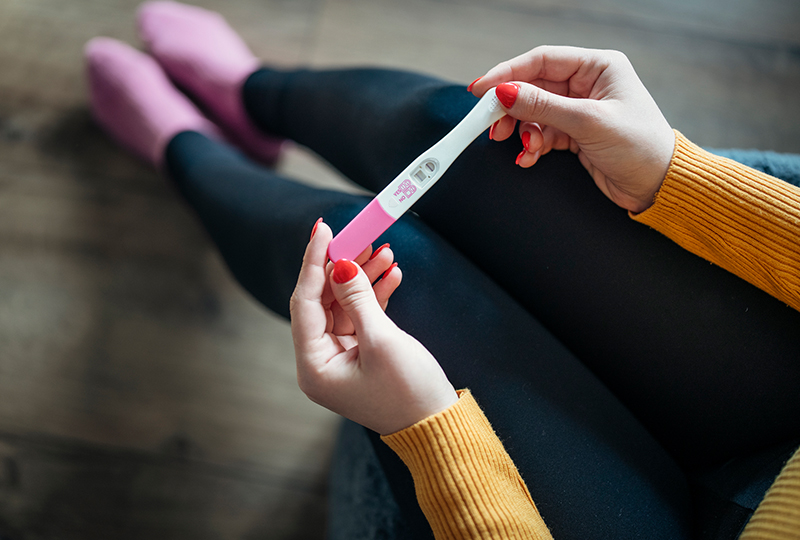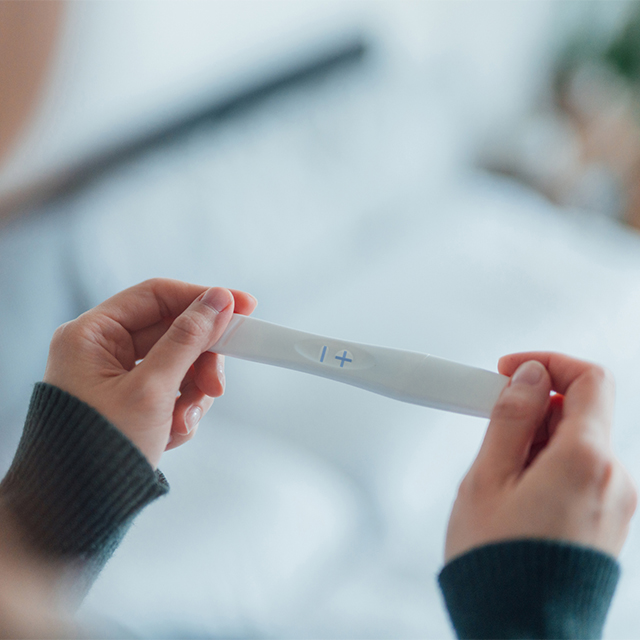What pregnancy symptoms can — and can’t — tell you about twin pregnancy.
Finding out you’re pregnant can feel like a surprise even when you were trying to conceive. But most people who then hear, “It’s twins!” are completely shocked by the news.
Twin pregnancies are detectable during the first trimester on ultrasound, which can take place as early as six to seven weeks after the last menstrual period or four to five weeks after conception. But is there any way to know sooner? For instance, you may be wondering if there is a difference between singleton and twin pregnancy symptoms.
Signs of twin pregnancy
Early pregnancy symptoms — which commonly include nausea, vomiting, fatigue and breast tenderness — are caused by a flood of hormones, namely human chorionic gonadotropin, or hCG. Because hCG levels usually double in twin pregnancies as compared with singleton pregnancies, it stands to reason that symptoms may be more intense, too.
“With a twin pregnancy, you get all of the same symptoms that you think about with one baby, but they can be much more intense,” said Dr. Amelie Pham, an obstetrician/gynecologist with Vanderbilt Women’s Health. “A lot of patients who are pregnant with two or more babies will have extra nausea and vomiting or fatigue.”
Being pregnant with multiples comes with an increased risk for having a condition called hyperemesis gravidarum, or extreme nausea and vomiting that leads to weight loss, clinical signs of dehydration and even complex medical complications. However, it is unknown how much these pregnancies raise a person’s risk for this condition.
And, of course, some report no difference at all in early twin pregnancy symptoms as compared with singleton pregnancies.
Is there such a thing as a twin pregnancy belly?
It’s true that pregnancy with twins can bring more weight gain than having one baby. It’s healthy for anyone with an average body mass index prior to pregnancy to gain between 25 and 35 pounds over nine months when carrying a single baby. Someone who’s pregnant with twins should aim to gain between 35 and 45 pounds during pregnancy. They’re also more likely to begin showing earlier.
But that doesn’t mean weight gain or belly size is a reliable way to predict twins.
“Everybody’s body is so different that there’s really no way of telling if it’s twins by sight,” Pham said. “How you carry a pregnancy will depend on the shape of your body, your BMI, the position of your uterus, whether it’s your first pregnancy versus your second or third — so many factors.”
Confirming a twin pregnancy
At the end of the day, the only way to know for sure if you have more than one bun in the oven is to have an ultrasound performed by a trained sonographer. So be sure to schedule your first OB visit as soon as you get a positive pregnancy test.
One family’s experience, delivering multiples
A pregnancy involving twins is often considered high-risk. Monica Barton shares her experience of delivering multiples – triplets! – 13 weeks early, under the care of the expert obstetrics team at Vanderbilt Tullahoma-Harton Hospital. Part 1 of her family’s story:

Part 2 of Monica Barton’s story: Her newborn triplets received months of specialized care in the Level IV Neonatal Intensive Care Unit at Monroe Carell Jr. Children’s Hospital at Vanderbilt. How a team of nurses helped nurture this family when they needed extraordinary support:


Personalized pregnancy care and delivery
Every member of the Vanderbilt Pregnancy Care and Delivery team is specially trained to care for women during pregnancy, labor and delivery. This includes board-certified obstetricians, certified midwives, maternal-fetal medicine specialists, nurses specializing in obstetrics and labor and delivery, and obstetric anesthesiologists. We have the skills and training to care for any woman’s pregnancy, including those at high risk of complications.




